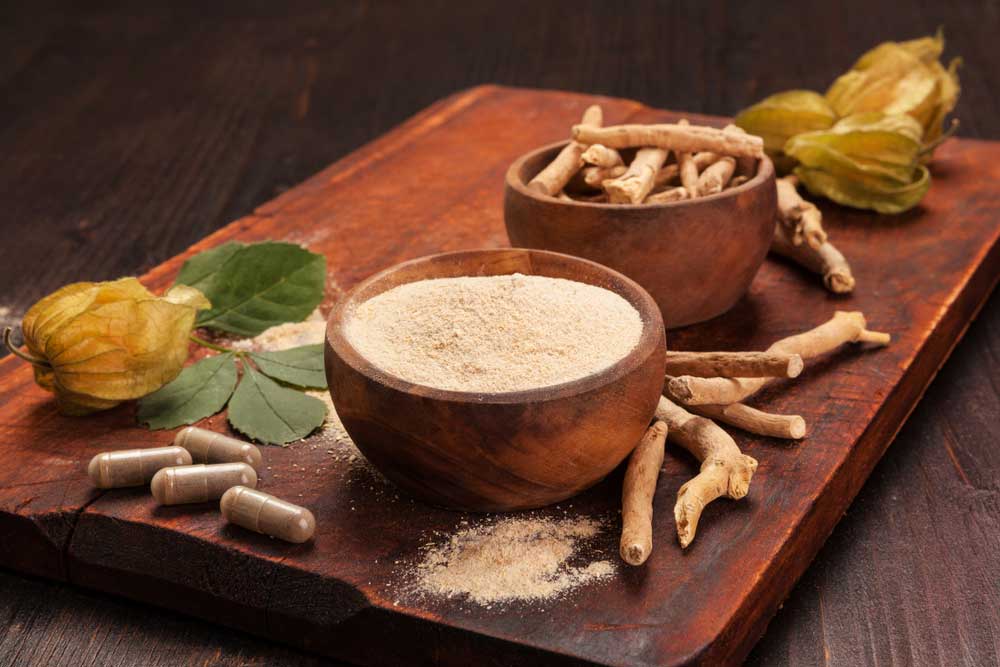What Are Ashwagandha Benefits?

What Is Ashwagandha?
Ashwagandha (Withania somnifera), sometimes called Indian ginseng, is a plant utilized in Ayurveda, the Indian system of traditional medicine. Ashwagandha root smells like horses and is said to give users a horse's power. In Sanskrit, ashva means "horse," and gandha means "smell." The plant has many uses, but the extract of ashwagandha roots is a universally used supplement.
As an adaptogen, ashwagandha benefits are thought to include improving the body's capacity to withstand stress. Although research on rodents and cell cultures indicates that ashwagandha benefits are varied, most of these effects have not been proven in humans.

What Is Ashwagandha Good For?
An essential herb in Ayurvedic treatment is ashwagandha. This is one of India's healthcare systems and one of the oldest medical systems. Ashwagandha is classified as a Rasayana in Ayurvedic medicine. In other words, one of the ashwagandha benefits is the preservation of youth—both intellectually and physically.
The plant may have neuroprotective and anti-inflammatory properties, according to some data. Many illnesses are characterized by inflammation, which can be reduced to defend the body from a number of ailments.
For instance, people use ashwagandha to help treat the following:
stress
anxiety
fatigue
pain
skin conditions
diabetes
arthritis
epilepsy
Ashwagandha roots, leaves, seeds, and fruit are among the parts used in various therapies. In the West, this herb is becoming more well-liked and ashwagandha benefits are being increasingly known. Today, Americans can purchase ashwagandha as a supplement.
What Are Ashwagandha's Benefits?
According to scientific research, ashwagandha may be helpful for various illnesses. However, according to researchers, little is known about how the herb interacts with the human body. Since animal or cell models have been utilized in most studies to date, experts are unsure if the same outcomes will occur in people.
The most well-known ashwagandha benefits are its anxiolytic (anti-anxiety) and stress-relieving properties. Several studies have shown that it also appears to lower cortisol levels. A lot of research supports ashwagandha benefits for increasing total sleep time and quality in those with and without insomnia.
Athletes are also becoming more and more interested in ashwagandha. Preliminary research indicates that ashwagandha enhances upper and lower body strength, lower body power, and recuperation in addition to increasing VO2max. It's not apparent if these effects last in athletes who have received proper training. Ashwagandha benefits for men with fertility problems may also include enhancing certain sperm quality indicators.
What Are Ashwagandha's Side Effects?
Although many people believe in ashwagandha benefits, a more extensive long-term study is required to assess ashwagandha benfits and side effects. Some people may experience minor tiredness and sedation from ashwagandha, despite ashwagandha benefits.
Is Ashwagandha Safe?
Although ashwagandha benefits are widely known, pregnant women should not use ashwagandha as it may result in early labor and fetal discomfort.
The Food and Drug Administration (FDA) does not oversee manufacturers and it is another possible issue with Ayurvedic herbs. This indicates that they are not bound to the same standards as businesses that manufacture drugs and foods.
These products might not contain the herb at all, or they might contain pollutants like heavy metals. Despite the claimed ashwagandha benefits, before buying any goods, consumers should make sure to perform some research about the maker.
Some Ayurvedic items may include lead, mercury, and arsenic in concentrations higher than what medical professionals consider safe for a person's daily intake, according to the National Center for Complementary and Integrative HealthTrusted Source.
How Does Ashwagandha Work?
Numerous bioactive substances, including alkaloids, flavonoids, glycosides, steroids, and steroidal lactones, are present in ashwagandha. Withanolides are thought to be responsible for most of the plant's advantages and are found in steroidal lactones.
Ashwagandha has powerful anti-inflammatory and antioxidant qualities, accounting for most of its advantages. Ashwagandha can decrease lipid peroxidation while also raising levels of antioxidant enzymes like glutathione peroxidase and superoxide dismutase. See the Research Breakdown section for more details on modes of action, including molecular targets.
Ashwagandha appears to affect the hypothalamic-pituitary-adrenal axis, which is essential in the stress response, as shown by its capacity to lower cortisol levels. This effect is part of its capacity to lessen stress and anxiety. Ashwagandha also appears to change the signaling of some neurotransmitter malfunctioning in anxiety disorders. Its advantages for sleep are thought to be especially related to its capacity to boost GABAA receptor signaling.
More research is required to establish this ashwagandha benefit. Still, ashwagandha benefits also include endurance performance by raising hemoglobin levels, the protein in red blood cells carrying oxygen to the rest of the body.
The antioxidative properties of ashwagandha and its capacity to raise testosterone levels are thought to be responsible for its potential to enhance reproductive health. Although preliminary research suggests ashwagandha benefits for healthy men may be increased testosterone levels, this impact is more pronounced in infertile men with low testosterone levels.
What Else Is Ashwagandha Known As?
Note that ashwagandha is also known as:
Withania Somnifera
Indian Ginseng
Smell of Horse
Winter Cherry
Dunal
Solanaceae
Ashwagandha should not be confused with:
Withania coagulans (Different Plant)
Ashwagandha Supplements: What You Need to Know
The market offers a variety of ashwagandha powders, capsules, and drinks that include ashwagandha as a supplement. Absorption rates will vary depending on the format, and studies have shown that liquids may have a higher absorption rate than other formats. Also, one of the ways of benefiting from ashwagandha is using NourishVita ashwagandha extract gummies, which are one of the best ashwagandha gummies.
In order to further improve ashwagandha benefits in supplements, several manufacturers now combine ashwagandha with additional vitamins, minerals, and substances like vitamin C and antioxidants.
Despite the wide variety of supplements available, there are a few things you need to understand about ashwagandha.
Ashwagandha Supplements: What to Look for
It might be challenging to tell which brands are beneficial from those merely out to rip you off because there are so many options available.
Fortunately, The Foods Channel has thoroughly investigated and analyzed this field, ensuring that you won't waste your money on inferior, deceptive, or potentially harmful products and that you would get the most ashwagandha benefits out of these supplements.
Dosage Information
Ashwagandha benefits studies have used daily doses of 250–600 mg of an ashwagandha root extract. The most typical dosage is 600 mg/day, split into two doses, one taken with breakfast in the morning and the other in the evening.
According to the available data, 600 mg/day is preferable to lower doses for enhancing sleep.
Similarly, athletes engaging in rigorous training may benefit more from daily doses of 600–1,000 mg than those who take smaller amounts. However, the assumption that doses beyond 600 mg/day produce higher ashwagandha benefits needs additional proof.
Because of its potential drug-like effects on neurotransmission, it is unknown if ashwagandha may lose its effectiveness after prolonged daily use, but this possibility cannot be entirely out. It is also unknown whether consuming ashwagandha every other day or on breaks affects its efficacy.
What You Need to Avoid
High Concentration of Withaferin A
Unnecessary Additives or Synthetic Fillers
Fake Reviews
Prioritise Quality Over Price
What Are the Benefits of Ashwagandha for Hair?
The majority of ashwagandha's benefits can be attributed, at least in part, to its potent anti-inflammatory and antioxidant properties. As well as reducing lipid peroxidation, ashwagandha can increase levels of antioxidant enzymes such as glutathione peroxidase and superoxide dismutase. Ashwagandha's ability to reduce cortisol levels to ease stress and anxiety suggests that it alters the hypothalamic-pituitary-adrenal axis, which is vital in the body's reaction to stress.
What Are Ashwagandha Benefits for Skin?
An enzyme known as telomerase is essential to the aging process. The ashwagandha root extracts increase telomerase activity, increasing the life of healthy skin cells. This stops the loss of telomerase and may postpone aging.
Ashwagandha's strong antioxidant content aids in the fight against signs of aging skin, such as wrinkles, fine lines, blemishes, and dark spots. Their ability to smooth out wrinkles strengthens the skin, giving it a youthful appearance.
Ashwagandha reduces cortisol levels, which benefits the skin by reducing stress. It increases the production of collagen, which improves skin regeneration and healing. Together, these factors slow down aging.

What Are Ashwagandha Side Effects?
Ashwagandha may be safe when taken orally for up to three months. It is unknown whether ashwagandha is safe over the long term. When taken in high doses, ashwagandha may cause nausea, vomiting, and diarrhea. Rarely, liver issues could arise.
There isn't enough reliable data to determine whether Ashwagandha is safe or what potential adverse effects there may be when applied topically.





